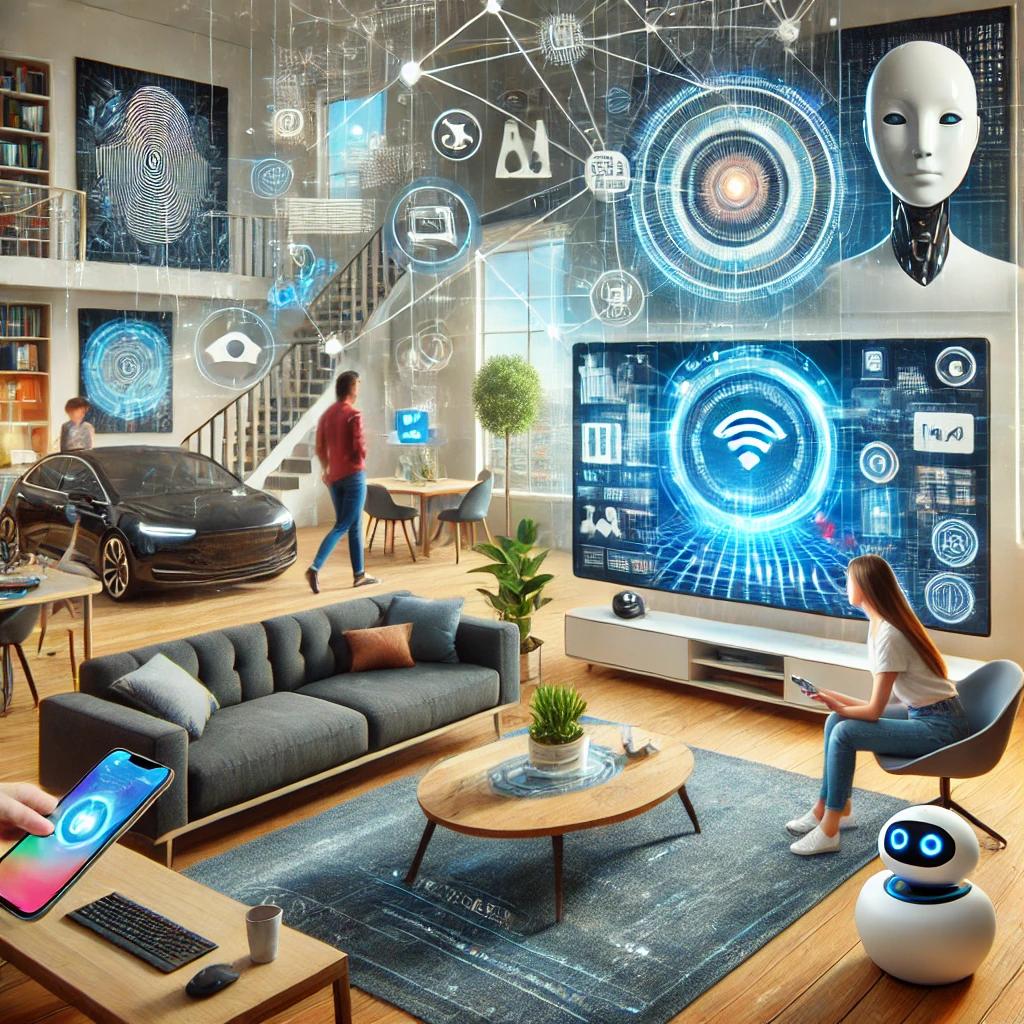
Artificial intelligence (AI) has rapidly evolved from a futuristic concept to a present-day reality, seamlessly integrating into our daily lives. From the convenience of smart home devices to personalized recommendations on streaming platforms, AI is becoming an indispensable part of how we live and interact with technology. But while AI offers incredible benefits, it also brings challenges and ethical questions that must be considered as we move forward.
The Benefits of AI in Daily Life
AI-powered technologies have made everyday tasks more efficient, personalized, and accessible. Here are some of the key ways AI is making a positive impact:
Smart Home Devices
Smart home devices, such as voice assistants like Amazon’s Alexa or Google Home, use AI to perform tasks based on user commands. These devices allow users to control lighting, security systems, and even household appliances with simple voice commands. AI helps automate mundane tasks, giving users more time for other activities while increasing energy efficiency.
Personalized Recommendations
From Netflix suggesting shows to Amazon recommending products, AI analyzes user behavior to offer personalized suggestions. This level of personalization makes it easier for individuals to find entertainment or products that align with their preferences, enhancing convenience and user experience.
Healthcare Advancements
AI is revolutionizing healthcare by assisting in diagnosing diseases, analyzing medical images, and predicting patient outcomes. Wearable devices powered by AI can track vital signs and provide real-time health insights, allowing for early detection and improved patient care.
Transportation and Mobility
Self-driving cars, powered by AI, are becoming a reality and promise to reshape transportation by reducing human error and traffic congestion. AI also plays a role in navigation apps, helping drivers choose the most efficient routes based on real-time traffic data.
Customer Service
Many companies now use AI-driven chatbots to handle customer service inquiries. These chatbots can respond to questions, troubleshoot issues, and even provide recommendations, improving response times and reducing the need for human customer support agents.
Challenges of AI Integration
While AI offers numerous benefits, its integration into daily life is not without challenges. As AI technology advances, several concerns must be addressed:
Privacy Issues
AI systems rely on vast amounts of data to function effectively. This data often includes personal information, leading to concerns about how that data is collected, stored, and used. As AI becomes more integrated into our lives, ensuring privacy and data protection is critical.
Job Displacement
One of the most significant challenges of AI is its potential to replace human jobs. Automation in industries such as manufacturing, retail, and customer service has already led to job losses. While AI can create new opportunities, there is a growing concern about how to balance automation with job security.
Bias in AI Algorithms
AI systems are only as good as the data they are trained on. If the data used to develop AI algorithms is biased, the AI will perpetuate those biases. This can lead to unfair outcomes in areas like hiring, law enforcement, and lending, where decisions may disproportionately affect certain groups.
Ethical Considerations Surrounding AI
As AI continues to advance, ethical questions about its development and use come to the forefront. Some of the most pressing ethical concerns include:
Decision-Making Power
AI systems are increasingly being used to make decisions in areas like healthcare, law enforcement, and finance. While these systems can improve efficiency, there is a concern about whether AI should have the power to make decisions that impact people’s lives. Human oversight is essential to ensure fairness and accountability in AI-driven decision-making.
Autonomy and Control
As AI becomes more autonomous, there is a growing concern about who controls the technology and how much autonomy it should have. For instance, self-driving cars rely on AI to make split-second decisions, but what happens when those decisions involve life-or-death scenarios? Striking a balance between AI autonomy and human control is a critical ethical issue.
Accountability
When AI systems fail or make mistakes, it can be challenging to determine who is responsible. Is it the developers, the users, or the AI itself? Establishing clear accountability for AI outcomes is essential, especially as AI becomes more deeply embedded in critical sectors like healthcare and finance.
Conclusion
AI is undoubtedly transforming our everyday lives, making tasks more efficient and personalized while opening up new possibilities for industries like healthcare and transportation. However, as we embrace these advancements, it’s essential to address the challenges and ethical considerations surrounding AI. By ensuring that AI is developed and used responsibly, we can maximize its benefits while minimizing its risks.







